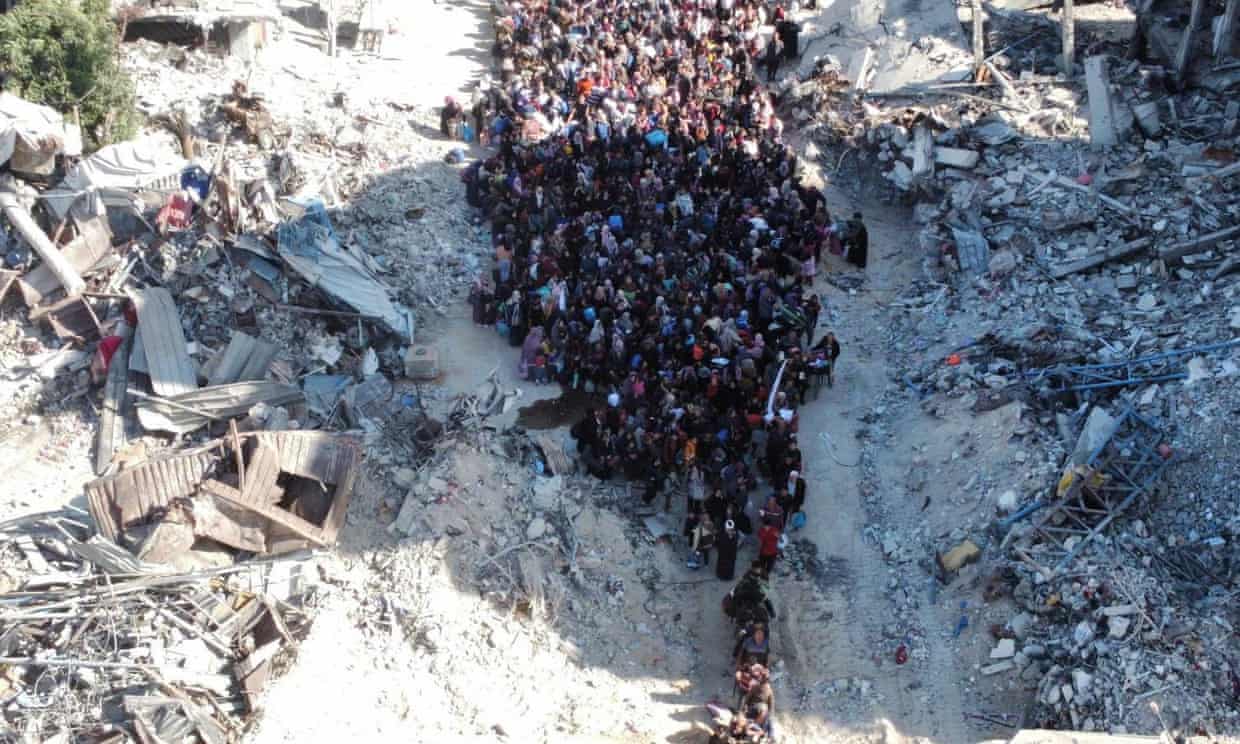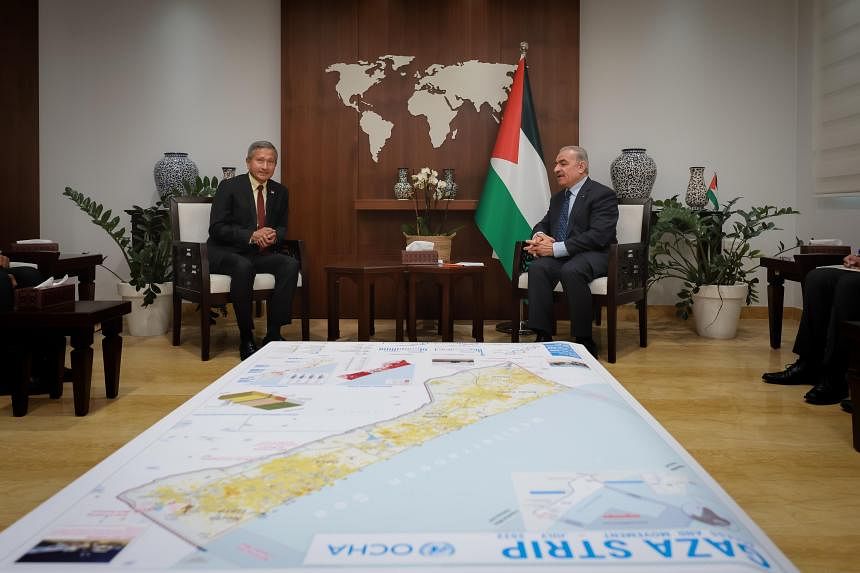40 days have elapsed since SG-based advocacy group Lepak Conversations put forward a letter to the Minister for Foreign Affairs Dr. Vivian Balakrishnan to urge the expedition of Singapore’s recognition of Palestinian statehood on 8 October 2024.
With no reply forthcoming from the Minister after two weeks, Lepak Conversations launched a petition for the Singaporean public to express their support for the recognition of the State of Palestine, which has since reached nearly 10,000 signatures.
You can access the petition through this link: https://www.change.org/p/join-these-singaporeans-in-asking-singapore-to-recognise-the-state-of-palestine
Since the launch of the petition for Singapore to recognize the State of Palestine on 23 October:
*The following timelines are non-exhaustive – the international war crimes perpetrated by the Israeli occupation accumulates as the genocide continues, and international political movement for Palestine is evolving.
25 October
Israel’s military invaded Kamal Adwan Hospital in North Gaza, and abducted over 40 doctors and nurses working inside, detained the director Hussam Abu Safiya and bombed the hospital again, destroying the paediatric and nursery wards.
The Palestinian Health Ministry lost contact with the health staff following the Israeli army’s incursion.
28 October
Israel bans UNRWA from operations from operating in Israel and East Jerusalem, halting essential services such as cleaning, education, and healthcare.
UN chief Antonio Guterres warned the Israeli law could have “devastating consequences” if implemented and “would likely prevent UNRWA from continuing its essential work”. Prime Minister Benjamin Netanyahu said on social media that Israel was “ready” to continue providing aid to Gaza “in a way that does not threaten Israel’s security”.
4 November
Israeli officials were revealed to be leaking and falsifying classified documents concerning the ongoing war on Gaza to sabotage ceasefire negotiations.
The fabricated documents refutes Israeli propaganda claims that late Hamas leader, Yahya Sinwar, did not want a ceasefire deal.
6 November
IDF Brigadier-General Itzik Cohen told Israeli reporters that “there is no intention of allowing the residents of the northern Gaza Strip to return to their homes”.
7 November
The Israeli Knesset passed a law allowing Palestinian children under 14 to be imprisoned in ‘closed facilities’. When the child reaches 14, the law would continue to enforce the sentence in prison.
A second law was passed for the deportation of family members of Arab citizens of Israel who were involved in attacks against Israelis, without charge or trial. Israeli media says those deported will be sent into Gaza. International law prohibits deportation or the revocation of citizenship without the prior agreement of the state to which the deportee is being sent – although Israel is a habitual violator of international law.
Israel practices an apartheid judicial system: Palestinians, including children, are tried in Israeli military courts and are subject to Israeli military law, while Israelis are tried in civilian courts in Israel.
11 November
Israel finance minister Belazel Smotrich announces plans to annex more Palestinian territory, and declares 2025 will be the year of “expanding Israeli sovereignty” to the West Bank.
North Gaza has already been separated from Gaza city since 6 October by the Israeli military by the Netzarim Corridor.
No aid has been allowed into North Gaza since Israeli annexation.
13 November
Acclaimed UK surgeon Prof Nizam Mamode gives testimony of his medical service in Gaza, that “drones would come down to pick off civilians, children.”
Israeli military drones would shoot to kill children and civilians after they survive bomb drops and airstrikes.
International efforts escalate to hold Israel accountable for war crimes and illegal settlements on Palestinian territory
What are the effects of recognition of one state by another?
When the existence of a state is debated, its recognition by another state is a source of legitimacy, especially if it is a major power or a neighbouring country, in order to secure its borders.
According to George Kyris, Associate Professor at the Department of Political Science and International Studies, University of Birmingham, UK:
History tells us that the exclusive recognition of a right to statehood […] has worked as a kind of promise that the recogniser, often the international community at large or in part via the UN or other international bodies, gives to eventually accept an independent state.”
(from “The Recognition of a Right to Statehood and Palestine”, Global Review of Ethnopolitics, July 2024)
Should Singapore review its diplomatic stance and expedite the recognition of the State of Palestine?
Singapore has implemented a S$10 million Enhanced Technical Assistance Package (ETAP), which has trained over 750 officials from the Palestinian Authority (PA) in diplomacy, water management, economic management, and urban planning. The PA administers the West Bank.

At present, the newly-appointed Israeli Defense Minister Israel Katz has been enacting a complete siege of North Gaza. On X (formerly known as Twitter), Katz wrote on 13 October:
“All the civilian population in gaza [sic] is ordered to leave immediately. We will win. They will not receive a drop of water or a single battery until they leave the world.”

According to Al-Jazeera, Katz is seen as antagonistic to Palestinians in general and the Palestinian Authority (PA), in particular. As far back as 2011, he called for cutting off relations with the PA. More recently, he promised to “break and dissolve” the PA if the UN moved forwards with resolutions against Israel.
In August, he called for the eviction of Palestinians from the occupied West Bank.
He has previously used the threat of another Nakba* against the Palestinians as well.
In 2022, addressing the Knesset, Katz said, “Yesterday I warned the Arab students, who are flying Palestine flags at universities: Remember 48. Remember our independence war and your Nakba, don’t stretch the rope too much. […] If you don’t calm down, we’ll teach you a lesson that won’t be forgotten.”
*Nakba, or “Al Nakba”, literally translates as “The Catastrophe”. It refers to the mass exodus and ethnic cleansing of at least 750,000 Arabs from Palestine in 1948 and Israel’s military occupation of the Palestinian territories.
The Israeli occupation’s current military incursion corresponds to the “General’s Plan”
Legal experts have described the military campaign as “genocidal” and aimed at permanent forced displacement of the northern Gaza population, as settlers plan for post-war colonisation of the Palestinian enclave.
The creation of the 6km military barrier known as the Netzarim Corridor divided North Gaza from Gaza City, which prevents all passage from North to South. Since 6 October, the Israeli occupation has imposed a siege on North Gaza, preventing all access to food, water, medicine, and shelter for the purpose of eliminating the presence – by starvation, disease, or bombardment.
First responders have paused operations in northern Gaza altogether after crews were injured in airstrikes or detained by the military. Northern Gaza is completely without humanitarian services, water or food supplies, and there are reports of mass detentions of Palestinian men by Israeli forces at gunpoint around the destroyed Kamal Adwan Hospital, separating them from their families and instructing women and children to flee to the south.
According to Balakrishnan Rajagopal, a law professor at MIT and UN special rapporteur on the right to housing:
“Imposing a siege, preventing all access to food, water, medicine and shelter, all with an intention to force a population to leave is textbook ethnic cleansing and is a grave crime under international law. It is both a war crime and a crime against humanity.
Forcible displacement in northern Gaza under conditions of siege with an intent to eliminate their presence is genocidal, as it aims at the destruction of a people. Israel also bears responsibilities as a state for all of these grave breaches of international law.”
Janina Dill, a law professor at Oxford University, said the Generals’ Plan raises a number of challenges under international humanitarian law, also known as the law of armed conflicts. She says:
Yes, Israel can – in certain circumstances, even must – warn the civilian population of attacks or military operations that will affect it. However, civilians that cannot or do not want to heed such a warning or evacuation order remain civilians deserving of the full protections under international law. They cannot be starved or attacked because they failed to flee.
The simple act of not fleeing does not allow us to infer that civilians purposefully shield militants. Not fleeing your home does not count as direct participation in hostilities. It is truly a perversion of law to suggest that they lose their protection because they stand in the way of hostilities.
The formal recognition of the State of Palestine is consistent with Singapore’s stated diplomatic stance and advancing the two-state solution.
Singapore has had extremely friendly and cordial relations with Israel for over 50 years. The recognition of the State of Palestine would contribute to the peace process and for a just and peaceful resolution to the conflict. Israel itself has put forward “clear and repeated” rejections of a two-state solution or plans for Palestinian sovereignty.
As a UN Member State, Singapore’s recognition of the State of Palestine would be in accordance with the 19 July 2024 ICJ ruling that Israel’s occupation of the Gaza strip and the West Bank is unlawful, along with the associated settlement regime, annexation and use of natural resources.The Court added that Israel’s legislation and measures violate the international prohibition on racial segregation and apartheid. The ICJ mandated Israel to end its occupation, dismantle its settlements, provide full reparations to Palestinian victims and facilitate the return of displaced people.

What is the response from the Minister at present?
Although there has been no direct reply from the Foreign Minister to the open letter from Lepak Conversations, he addressed a parliamentary question on the subject last week.
In response to a parliamentary question by PAP MP Zhulkarnain Abdul Rahim on 11 November 2024, Minister Dr. Vivian Balakrishnan said that the International Criminal Courts (ICC) directive for UN member states to use the terminology “State of Palestine” in submissions has “no impact” on Singapore’s diplomatic position.
There is no impact. The United Nations (UN) has used the designation “State of Palestine” in official UN documents and on Palestine’s nameplate at UN meetings since 2012, following the adoption of UN General Assembly Resolution 67/19, which accorded Palestine non-member observer State status.
As I stated in Parliament on 2 July 2024, Singapore is prepared in-principle to recognise the State of Palestine and will make this move at the appropriate time. The key consideration is that such a move should help progress towards peace and a negotiated two-state solution. In particular, there will need to be an effective Palestinian Government that accepts Israel’s right to exist and categorically rejects terrorism.
Singaporeans can support the following initiatives to show their support for Palestine
2 ex-PAP MPs, 5 ex-NMPs and Academics urge Singapore to recognise the State of Palestine








